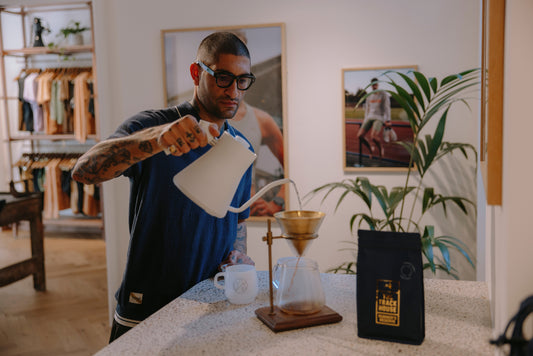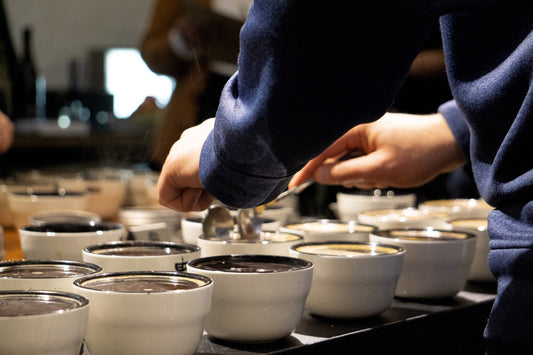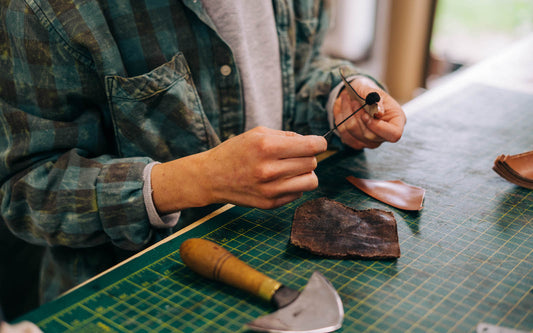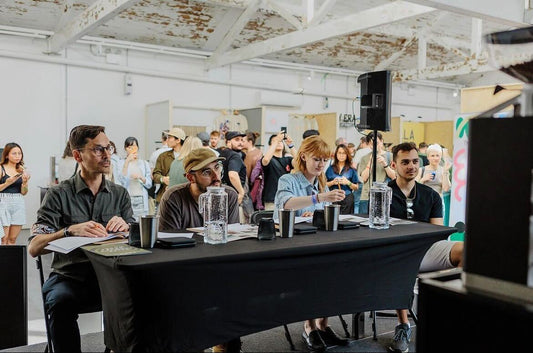Regardless of the earlier glories of a particular coffee, if the green coffee itself is past-crop, so from a previous harvest and generally a year or so off the tree, nothing will make that coffee taste great again. Once a coffee has begun to age, both the farmer’s work in cultivation and processing and the skill of the roaster become meaningless as there is simply no way to get the quality back. It may surprise some, but every now and then we remove coffees from our range, not because they have sold out but because they have gone past their best.
Coffee grows throughout the Tropics, but the climates differ greatly between countries, regions and even micro-regions. This means that while farmers in Kenya are harvesting their coffees, Brazilian coffees are already on ships going to coffee roasters around the world. Over the winter months it happens that the freshest, sweetest and cleanest coffees landing in the UK are all, in our opinion, coming from one particular country: Colombia.
Having an exclusively Colombian range of coffees might be unthinkable for other roasters, but for all the reasons mentioned, it is exactly what we have decided to do. As well as being from the same country, each of the four Colombian coffees we currently have available were produced within 150km of each other, yet all are markedly different and brilliant in their own way.
Our first fresh crop Colombian release, from the November/December harvest of 2014, came from La Tribuna. This 10 hectare farm owned and managed by Jairo Torres is a great example of how even good farms in Colombia are producing a variety of quality levels, with the best being portioned off to sell at higher prices. We originally picked La Tribuna to be a filter coffee, but decided at the last moment to bring it out as an espresso instead. This was definitely the right decision as this espresso shows just how clean and balanced Colombian coffees can be, with the natural sweetness present in this coffee particularly astounding!
Both La Soledad from Plinio Lopez and Santa Rosa from Alicia Joven come through a programme that engages directly with farmers who may be producing high quality coffee, but have not previously had access to the premiums that this market brings. Together with our import partners and a farmers’ co-operative in Huila, we were able to have these coffees separated out rather than put into the anonymous bulk blends they otherwise would have been party to. We hold great hopes that this programme and others like it will encourage farmers to see the rewards available for those who are willing to invest additional resources and energy into producing quality coffee.
The final release in this block of Colombian coffees is El Diamante, out now as our Cult of Done espresso, and it’s another remarkable coffee, not just for its quality but also for the fact it's comprised entirely of the Yellow Bourbon varietal. The other coffees in our range are from the Caturra and, to a lesser degree, Castillo varietals, both of which are very popular among farms in Colombia and other areas of South America. In contrast with these more common varietals, Yellow Bourbon has lower yields and is generally less resistant to the fungal infection Roya or ‘leaf rust’ and other coffee plant diseases. As Roya has particularly decimated farms over the past few years in the country, for the farmer Oscar Agudelo Hoyos to go with a low yield, low disease resistance varietal may strike some as folly; results such as these prove it can be done in the right hands.
Don’t get too comfortable wrapped up in Colombian coffee though, as fresh crops are on their way to us right now. Kenyan, Ethiopian, Guatemalan, Costa Rican and El Salvadorian coffees are either on the water, or awaiting export in their respective countries. Some may even be landed in the UK already. You’ll just have to wait and see what appears first, but trust us when we say it’s going to be a glorious spring and summer of coffee at Workshop.
All photos taken during our November 2013 trip to Colombia.
Share:










